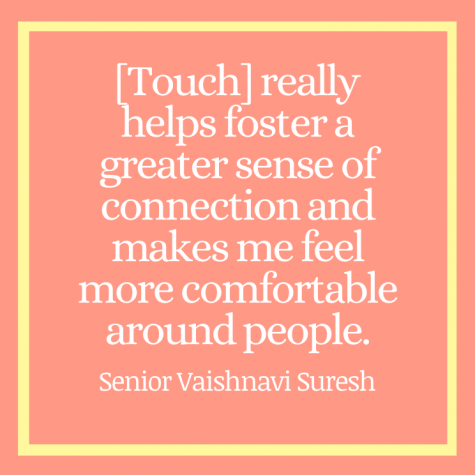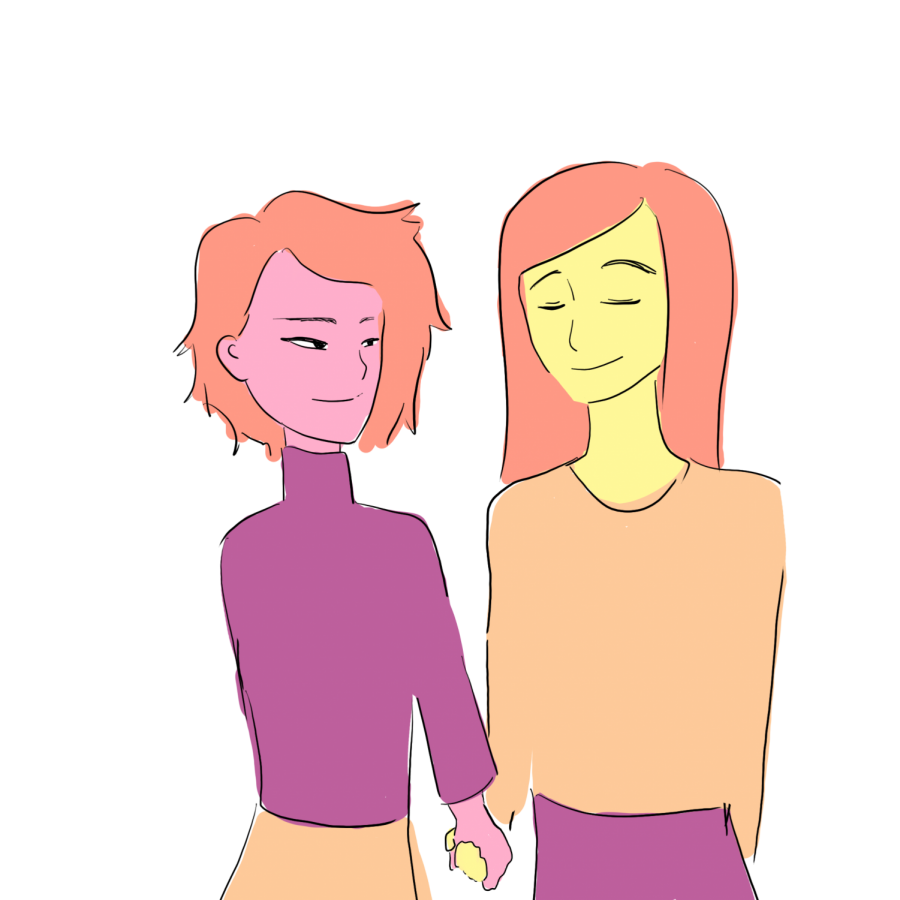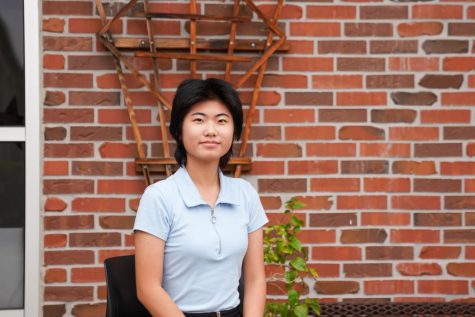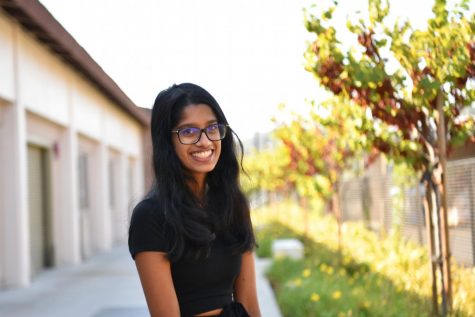Using physical touch
Exploring how physical touch plays a role in expressing affection among the MVHS community
October 30, 2021
One of the most surprising aspects about school psychologist Richard Prinz’s visit to a monastery in Nepal was the discovery that one of the teachers at the monastery had a habit of holding the hands of the people he talked to. This practice — which Prinz was initially reluctant to do — eventually allowed him to feel more connected to the teacher, both physically and spiritually. He describes the “wonderful” feeling the connection invoked in him, and explains that being able to understand the intention of the teacher through that gesture allowed him to feel more comfortable with his hand being held.
Although physical touch is meaningful to him, however, Prinz emphasizes the distinction between intention and effect, explaining that just because something is done with a certain motive doesn’t mean it will necessarily have the predicted outcome. Therefore, he says that expressing physical touch with a good intent isn’t enough; communication and understanding must be established in advance.
“Touch [and] affection is pretty important, as long as it’s done respectfully and with a caring attitude,” Prinz said. “You’re not doing it because you want something — it’s done with respect and agreement, and it’s genuine.”
As someone who expresses their affection through frequent hugs, freshman Yujin Um explains that they don’t feel comfortable exhibiting or receiving much more than brief physical contact with any person they aren’t good friends with. But with friends, hugs are a staple in their relationships — in fact, it’s gotten to the point where they can understand how their friends are doing through the nature of the hug.
“When they usually [don’t come] to me for hugs and they suddenly come to me and they shift all their weight onto me, I’m like, ‘Oh, are you OK?’ — especially if they stay there for a long time,” Um said. “But when they’re happy, I feel like it’s more of a sudden grasp, and not a slow lean[ing] into me.”
Hugs are also a fundamental expression of affection and love for senior Vaishnavi Suresh, although she often uses another form of physical touch with her friends as well — piggy back rides. Suresh says the main reason she does this is because she’s taller than most of her friends, and piggy back rides look “cute” in pictures, but the physical intimacy that it brings also allows her to feel closer to those around her.

“[Touch] really helps foster a greater sense of connection and makes me feel more comfortable around people,” Suresh said. “I think that really strengthens bonds between friendships.”
After months of social distancing and isolation, junior Nitima George explains how close physical interaction has helped her rekindle and strengthen friendships with people she hadn’t seen in a long time. She has noticed that even a small bit of physical interaction, such as a single hug, “can make someone’s day.”
Prinz explains that engaging in physical interaction, such as hugs and handshakes, stimulates the release of oxytocin — a hormone produced in the brain which studies have found plays a crucial role in social interaction, and decreases anxiety and stress levels. Describing themself as “severely touch deprived,” Um explains how physical interaction plays a role in their wellbeing and mental health.
“Personally, I’m a very clingy person, so if I’m not around someone or if I’m not touching any article of their clothing, I just get really scared I might lose them,” Um said. “If I hug them, [I’m] not as distant from them in a physical sense, and [as a result, I’m] more emotionally close to them.”
Although Prinz, George, Um and Suresh agree that physical touch can play a positive role in the relationship between two people, Prinz emphasizes that ultimately, nothing should be done without full consent from all parties.
“If a person isn’t capable of expressing [themselves through your love language], it doesn’t mean you have to stop loving them or wishing them well,” Prinz said. “You can get [those needs] met elsewhere — you can go to a therapist, or go find one of your friends that might be really good at [expressing themselves that way]. It’s appreciating that people have different ways to express [love], and not being so attached to the fact that someone has to provide it in the way that you want it.”


















